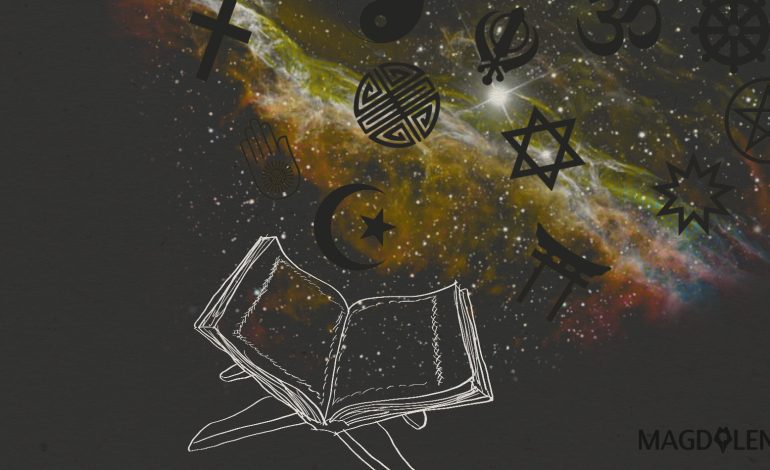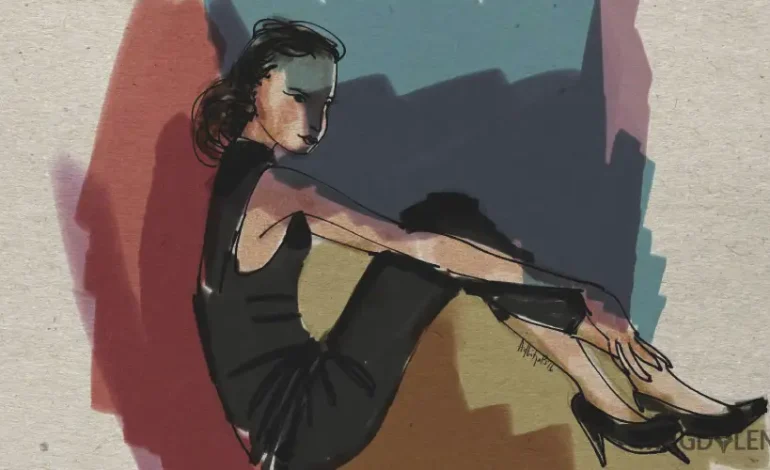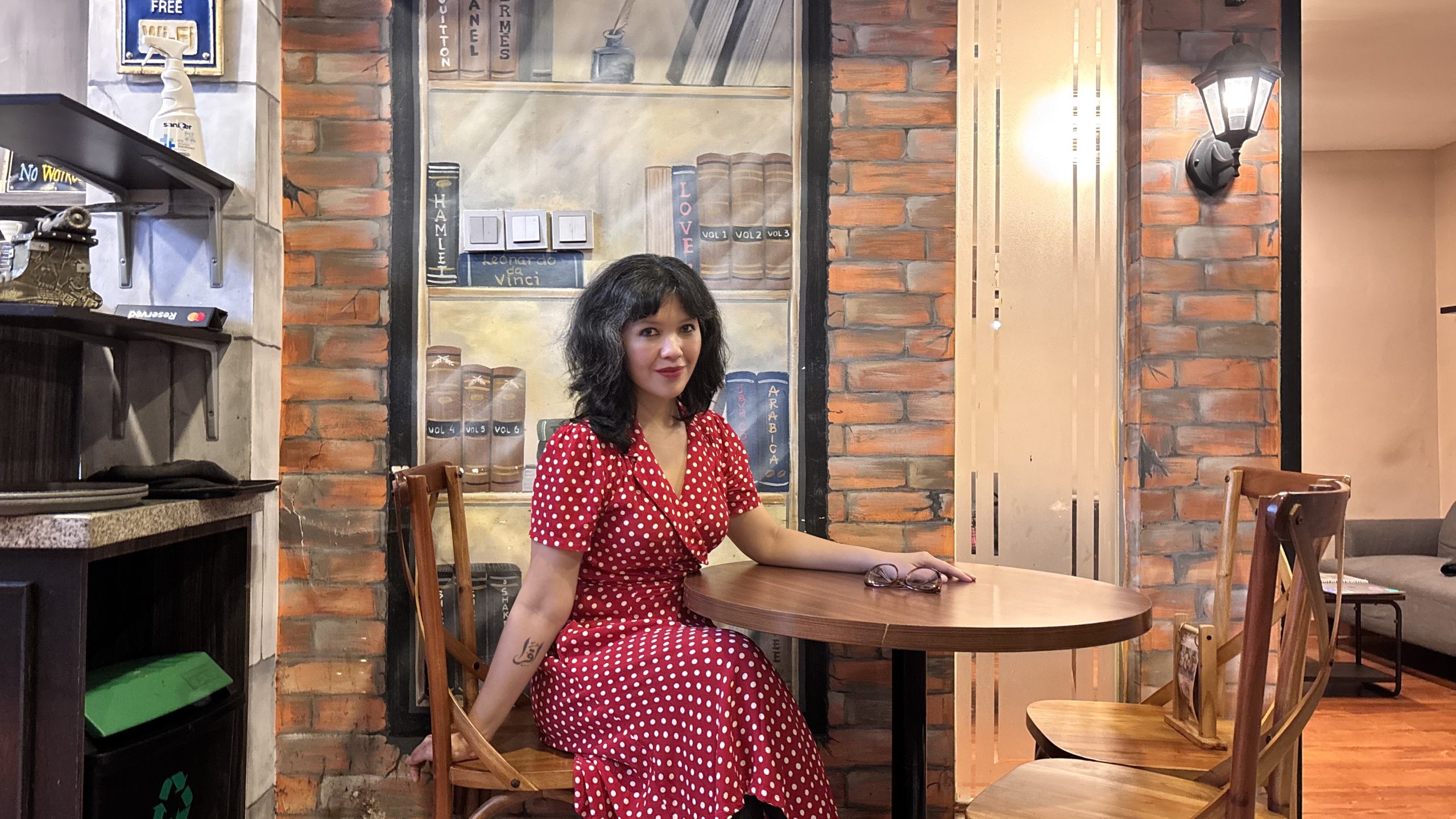Time to Popularize Quran Interpretations that Treat Women and Men Equally

“When I criticize Islam in the Muslim world I’m considered reform-minded and progressive. When I criticize Islam in the West, my words will be used by anti-immigrant and anti-Muslim groups. I’m fed up with living in such a prison,” said Turkish-Norwegian filmmaker Nefise Özkal Lorentzen in her film A Balloon for Allah, one of her trilogy on Gender and Islam.
In the film she asks why God, who is neither male nor female, seems to side with men, and why God’s words empower men only. The balloon in the film symbolizes her contemplation to God. To find some answers, she went to a few countries and met with many people like prominent Egyptian feminist Nawal El-Saadawi.
The film was recently screened by Aliansi Laki-laki Baru with Magdalene as media partner in Kinosaurus (22/6). Afterwards it fuelled an in-depth discussion on Women in Islam. In the discussion Nur Rofiah, a lecturer and board member of Rahima, a learning center for Islam and women’s rights, shared her knowledge on what causes discriminations against women in the Muslim society, what is the state of women in Islam, and how we can improve the current situation.
How language affects interpretation
In order to interpret the Quran we need to understand the very nature of its language, Nur said. Arabic language tends to be biased when it comes to gender. In Arabic language, all inanimate objects around us have genders: the chair, the table, the book – all of them.
“In Arabic language, even the word ‘Allah’ itself has gender. The way it’s pronounced refers to gender male,” she said.
Nur also noted that sexist grammar in Arabic language is inevitable. For instance, the word “women” in Arabic is derived from the word “men”, but it doesn’t work the other way around.
“Another example of sexist grammar: if a room only contains women, we refer to the audience as ‘female’. But if one man walks in, we should refer to the audience as ‘male’. Even if the amount of women equals one country or even one whole world, if there is just one man presents too, according to Arabic language we have to refer to them as ‘male’. It implies that the existence of one man is more important than the existence of billions women.” she explained.
Nur also points out that once the Quran is finished, it stopped answering questions about the world – which is why people started to interpret what God would say through tafsir or interpretation.
“However, the thing about tafsir is although a verse in Quran actually talks about justice, if it’s written by an unjust person, the result of interpretation will likely be unjust as well,” she said.
Moreover, for around 1400 years since the arrival of Quran, almost all of its mufassir (the author of tafsir) are men – Arabic men. As a result, what was actually the interpretation written by men raised in a patriarchal society, are now thought as God’s exact words, just because it’s been that way for hundreds of years.
“Therefore, when there’s a tafsir written by a woman with a good gender perspective that is different from what were written by the men, it is considered as defying God’s words, while it’s actually defying the patriarchy,” she added.
Nur points out that patriarchal society looks at Quran interpretations as most eligible when it is interpreted by men rather than by women. And these interpretations are based on a hierarchy in which women are inferior to men, and men are placed after God.
On the other hand, Quran interpretation with gender perspectives see this as a triangle shape where women and men are on the same starting point and both attempt to understand what God’s trying to say.
“No one can decide which one is wrong or right because we are all trying,” Nur said. “If you want to find sexist statements in Quran, you will find it. If you want to find fair statements in Quran, you will also find it. But, the most important thing is considering which one that should be prioritized,” she said.
Women’s role in Islam
Initially, Islam set out to criticize the way society treated women in the past, such as abandoning or burying alive baby girls in the dessert, or trading, inheriting or presenting women as gifts.
“Even a mother could be inherited to her son, if her husband died, which is why Islam strongly prohibits incest,” Nur explained.
In the past, men were also known for having sexual relationships with multiple women, some of whom might bear their children. But the men were not bound to any parental responsibilities, so they could simply leave their pregnant partners if they want to.
“Islam tried to come up with a compromise by urging men to treat all of their women fairly and limiting them to only three or four women,” she said.
…these days the more ‘Islamic’ a society or a country is, the more the men have polygamous marriage, the more the men feel it’s okay to marry children, the more the men feel it’s acceptable to beat their wives.
Unfortunately, the verse on polygamy is now often being used to support the argument for polygamy and to exploit women sexually.
“Actually, the verse on polygamy is followed immediately by a verse that suggests to only commit in a monogamous relationship, because Islam believes that it is the only ideal way to guarantee fairness within marriage. Unfortunately, the verse that urges monogamy is less popular,” Nur added.
She explained that though there are a lot of tafsirs with gender perspectives, they are often unpopular because the most popular ones are usually those with specific details, like those citing numbers, as well as those that fit the customs and traditions of a certain place at a certain time.
Another example of how women are secondary to men can be seen in an Islamic marriage. A formal Islamic marriage includes the akad nikah, a marriage arrangement between the bridegroom and the father or male guardian of the bride.
According to Nur, this nuptial process is important to a patriarchal society, because it reflects male superiority to women – that men are generally stronger economically, smarter and have more solid religious background, giving them the right to be responsible over a woman.
But some Islamic countries have made this system irrelevant today. In Morocco and Tunisia, women can marry men without male guardians, she said.
“The women there are indeed very progressive, they are able to hold key roles in the government as prime ministers and presidents,” said Nur. “If they can rule a country, it is silly to forbid them from choosing their own husbands.”
She compared the situation to her study in Indonesia.
“In Cianjur, a man raped his daughter and was imprisoned. Later somebody proposed to his daughter for marriage, but the Office of Religious Affairs (KUA) said she must have the blessings of her rapist father in prison,” she said.
“The worst part is that her father actually disagreed and refused to give his signature,” Nur explained.
Nur said that implementing equality in our daily lives is part of conveying our faith to God.
“If we as Muslims do not believe that women and men are equals, then something is wrong with our faith,” she emphasized.
Islam is not Arab
“It’s very common in our society here in Indonesia to think that ‘if you’re not Arab enough, you’re not Islamic enough’. Your name should sound Arabic; you should dress like the Arabs. Even your beard should be long enough to assure people that you are an authoritative figure,” Nur highlights.
The Arabic language is just a language. In the Middle East, even porn is in Arabic, she said. You can find Arabic calligraphy in churches, because it is the language they use, she said.
“But try to use Arabic language on adult movies with nude scenes here in Indonesia, and people will overreact. Those involved might as well be burnt by FPI,” she said, referring to the Islamic hard line groups.
By choosing the Arab as our ideal form of society, we would be living in a very unfriendly culture that highly discriminates women, she said.
“As a result, these days the more ‘Islamic’ a society or a country is, the more the men have polygamous marriage, the more the men feel it’s okay to marry children, the more the men feel it’s acceptable to beat their wives,” she said.
She says that sometimes when Muslim scholars in Indonesia describe the period of the Prophet, they often overdo it, making it sounds more like Jahiliyyah (pre-Islamic) era.
“For example, we may have heard the saying ‘women can only get out three times in her life: of their mothers’ womb, of their mother’s home to their husbands’ home, of their husbands’ home to her grave.’ That saying definitely did not come from the period of the prophet, but from the Jahiliyyah era when women were oppressed,” she said.
More than just theological aspects, religion often reflects the social construction of a society, which is why it is important to improve our learning system and treat the Quran as a text that should be critically analysed, she said.
“When reading the Quran, we need to know the context and not just merely take out a verse to validate something,” she said. “We should start to popularize tafsir that treats men and women equally, so that we can create balance in our world.”
A Balloon for Allah (2011) movie trailer:
Read Ayunda’s review of the movie The Lobster.






















